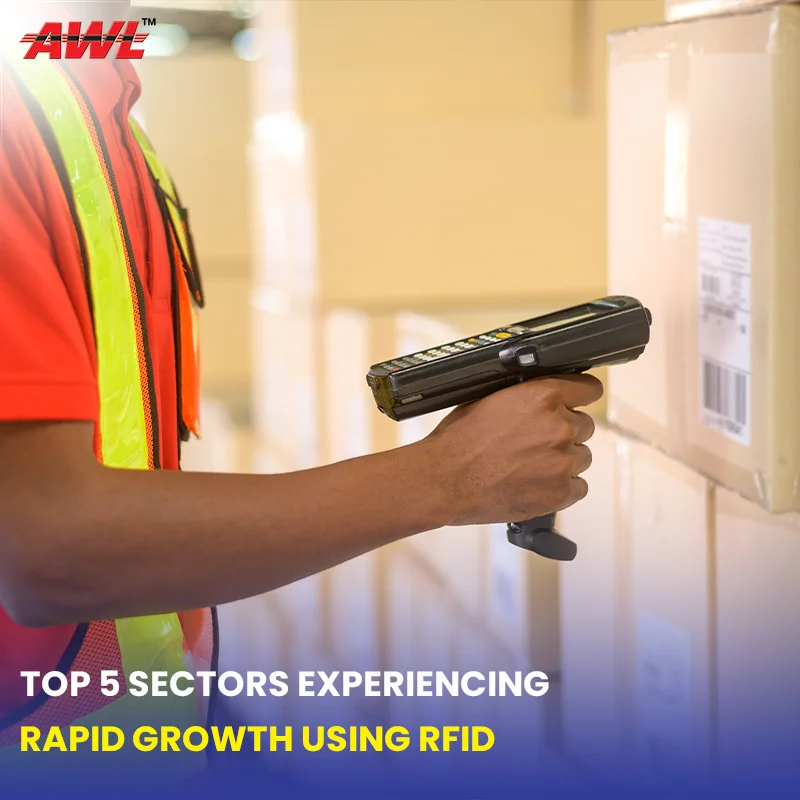

The term "Data Analytics" refers to the examination of large amounts of data. The use of substantial technologies to get useful insights from collected data is known as data analytics. The supply chain and logistics industry has been a major role of data analytics. Until recently, the industry relied on antiquated machines, equipment, and processes. This not only limited output, but it was also the cause of the initial decline.
AWL India's digital transformation was a silver lining in this situation. AWL India has seen a tremendous shift in the expansion of the supply chain and logistics business in the previous few years. The impact of data analytics has been significant in this. Let's take a look at three examples of how Data Analytics may be used correctly in logistics.
Data analytics is one such tool that aids in the real-time tracking of items and machinery. One can control and monitor vehicles and keep track of shipments from the manufacturing process to the last mile delivery of goods. Continuous device monitoring results in enhanced delivery and shipment status. This, in turn, improves supply chain efficiency and creates a climate in which leaders and stakeholders can acquire supply chain information more effectively and quickly. Take a look at how India's biggest food transport company receives real-time visibility into its supply chain as an example. AWL's supply chain has been connected with a new management system to help ensure that fleet managers and drivers communicate effectively.
One of the key ramifications of data analytics in logistics is predicted to be predictive analysis. Companies may now examine and analyse machine behaviour patterns, which allows them to spot irregularities. Organizations have control over the behavioural changes that prevent computers from working properly. This means that businesses can utilise predictive analysis to better notice and respond to events such as weather fluctuations.
Furthermore, predictive analytics is critical for preserving demand and supply equilibrium. Shippers can effectively compile reports on consumption and forecast demand using historical data and existing models. In certain ways, this speeds up delivery and reduces waste. Take a look at how a leading logistics solutions provider uses vehicle diagnostic data for vehicle tracking and preventative maintenance as an example. Their AWL management team in India manages over 5000 vehicles and enhances fleet operational efficiency.
Order processing is a crucial part of order fulfilment since it involves the choosing, packaging, and delivery of packed items to a shipping carrier. The term "distribution centres" or "DC's" refers to order processing operations or facilities. The level of automation connected with the "pick-pack-and-ship" process varies greatly, ranging from wholly manual and paper-based to highly automated and fully mechanised; computer systems that manage this process are known as Smart Warehouse Management Systems, or "WMS."
The ability to integrate precise, efficient data into processes frees up space for the insertion of new orders. Ultimately, this leads to more orders being transported, which increases demand for supply chain services. As a result, a company's performance increases, and the volume of data in logistics expands, revealing flaws in present systems.
"Route optimization" is the process of determining the most efficient route from point "a" to point "b." This minimises the time it takes to deliver an item while simultaneously increasing the system's efficiency. Logistics route optimization is a comparable case. Data piles up when information is gathered from several sources. Everything from GPS to weather, fleet information, and delivery schedules goes into the system, which is then utilised to determine the best delivery route. Take a look at how a top food service company uses a Microsoft Power BI-based Business Intelligence solution to gain actionable information.The system enables the company's supply chain and operations teams to efficiently track and control food delivery operations. The interactive Power BI supply chain dashboards reveal crucial business insights like temperature thresholds, driver performance, and consumer behaviour, allowing the team to make more informed decisions.
These aspects enable AWL India to continuously monitor performance and detect inefficiencies based on real-time data. AWL managers have the information they need to intervene as soon as data suggests errors in picking rates, delays in picking operations, or that shipping is missing some goods. Predictive analytics may also be used to predict demand peaks for any product at any time, at the correct location, and at the right price. Furthermore, knowing how client demand will change allows you to plan for and anticipate variations in demand, inventory shortages, and cost reductions.
AWL India uses advanced analytics to improve pricing, routing, and partial load shipment consolidation processes. The digital front end, of AWL India, provides clients with a problem-free experience while also improving internal operational insight by automating formerly manual operations. AWL India's labor-intensive logistics operations will undoubtedly be simplified by the automation of fundamental internal business procedures.
The number of industries using data analytics to streamline, accelerate, and optimize their operations is on the rise. Companies like AWL India are making a significant contribution in the logistics industry in pushing for the use of data metrics to analyze logistics and supply chain performances. With AWL India’s services, the provisions for accurate data tracking and analytics comes as an inseparable part.
It is predicted that in the near future, most industries will rely on data to carry out every commercial transaction. Then, most large service/product sector organizations will rely on their data analytics consulting team and choose to use data analytics as a growth strategy. And why not? Accurate data analytics can help businesses in a way analog operations can never. With the help of

